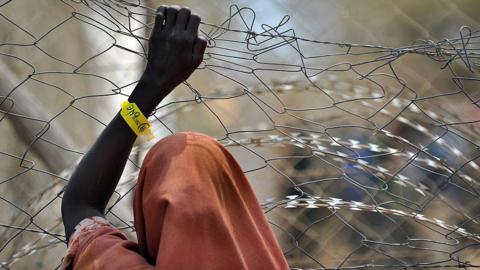Once regarded as a safe haven for refugees, Kenya is slowly becoming a hostile place for some of those seeking protection from political persecution and war, rights groups say.
Their concerns come after masked men abducted at gunpoint four Turkish refugees in the capital, Nairobi, last month - the latest in a series of such cases in the East African state.
Kenyan authorities said the four, who were recognised by the UN as refugees, were deported at the request of the Turkish government, which wants them on treason charges.
Critics accuse Kenya of abandoning an age-old legal principle of "non-refoulement", which prohibits the forced return of people to countries where they may face persecution.
This has tarnished Kenya's reputation, with the local Daily Nation newspaper reporting that the chiefs of the US's Central Intelligence Agency (CIA) and the UK's foreign intelligence agency MI6 - William Burns and Richard Moore respectively - raised the deportations with President William Ruto during their visit to Nairobi late last month.
Kenya's refugee commissioner John Burugu declined to comment about the expulsions, but senior foreign ministry official Korir Sing'oei highlighted the dilemma the government faced when he said it needed to perform a "crucial balancing of interests for the bigger good".
"Harbouring the subversive elements accused of undertaking activities detrimental to a friendly country posed both a diplomatic and humanitarian dilemma to Kenya," he added.
In the end, realpolitik triumphed, with Kenya not prepared to jeopardise its closer ties with Turkey, which saw the two countries sign a military co-operation agreement in July.
Compared to its neighbours, Kenya has enjoyed peace and stability for many years, making it a prime destination for refugees and asylum seekers, from various conflict-hit or authoritarian countries in the region such as the Democratic Republic of Congo, Eritrea, Rwanda and South Sudan.
East Africa's biggest economy, Kenya is home to more than 800,000 refugees, according to Burugu.
But rights groups fear that the country has in recent years become an increasingly unsafe for those fleeing persecution in their home countries.


